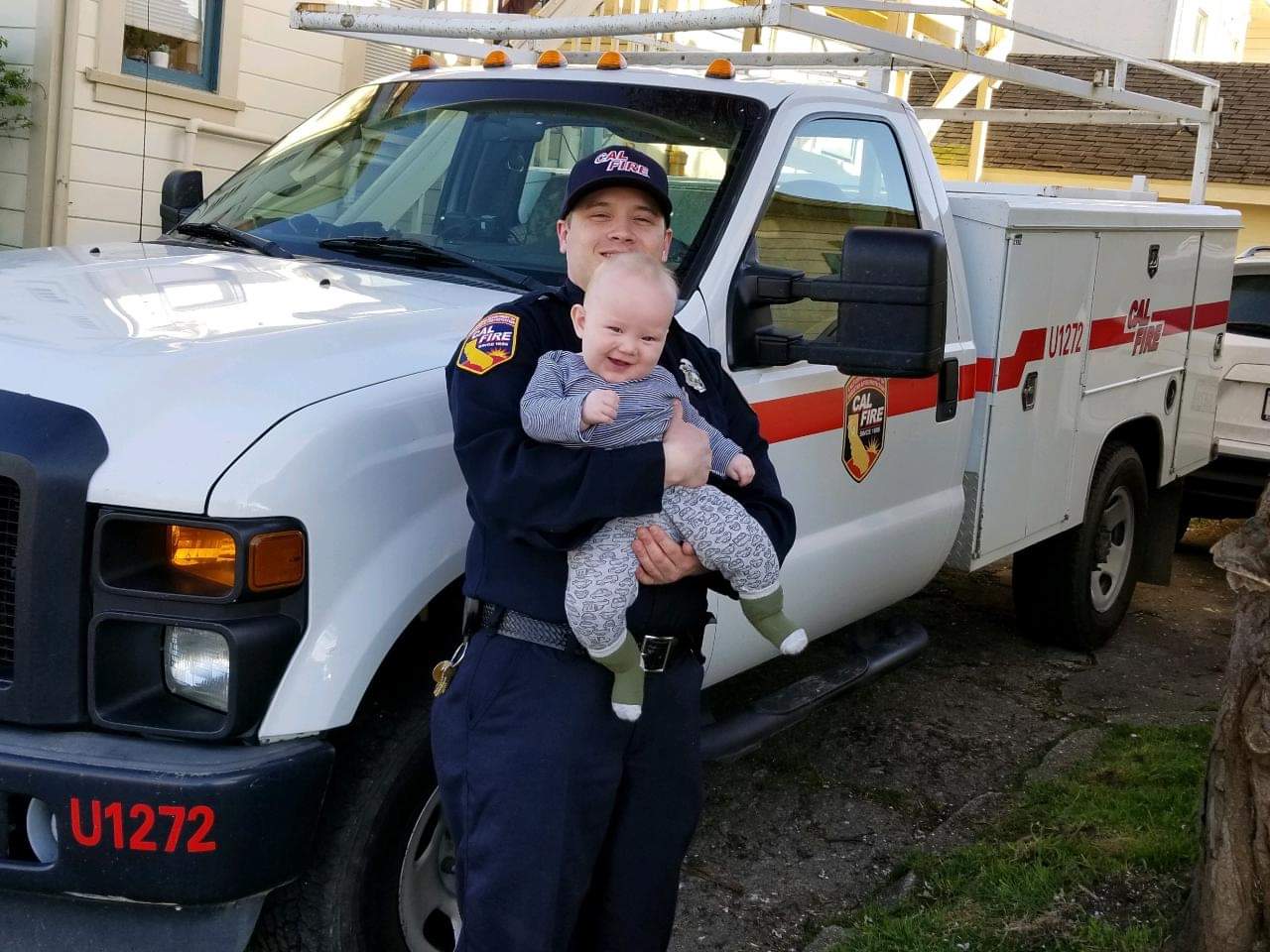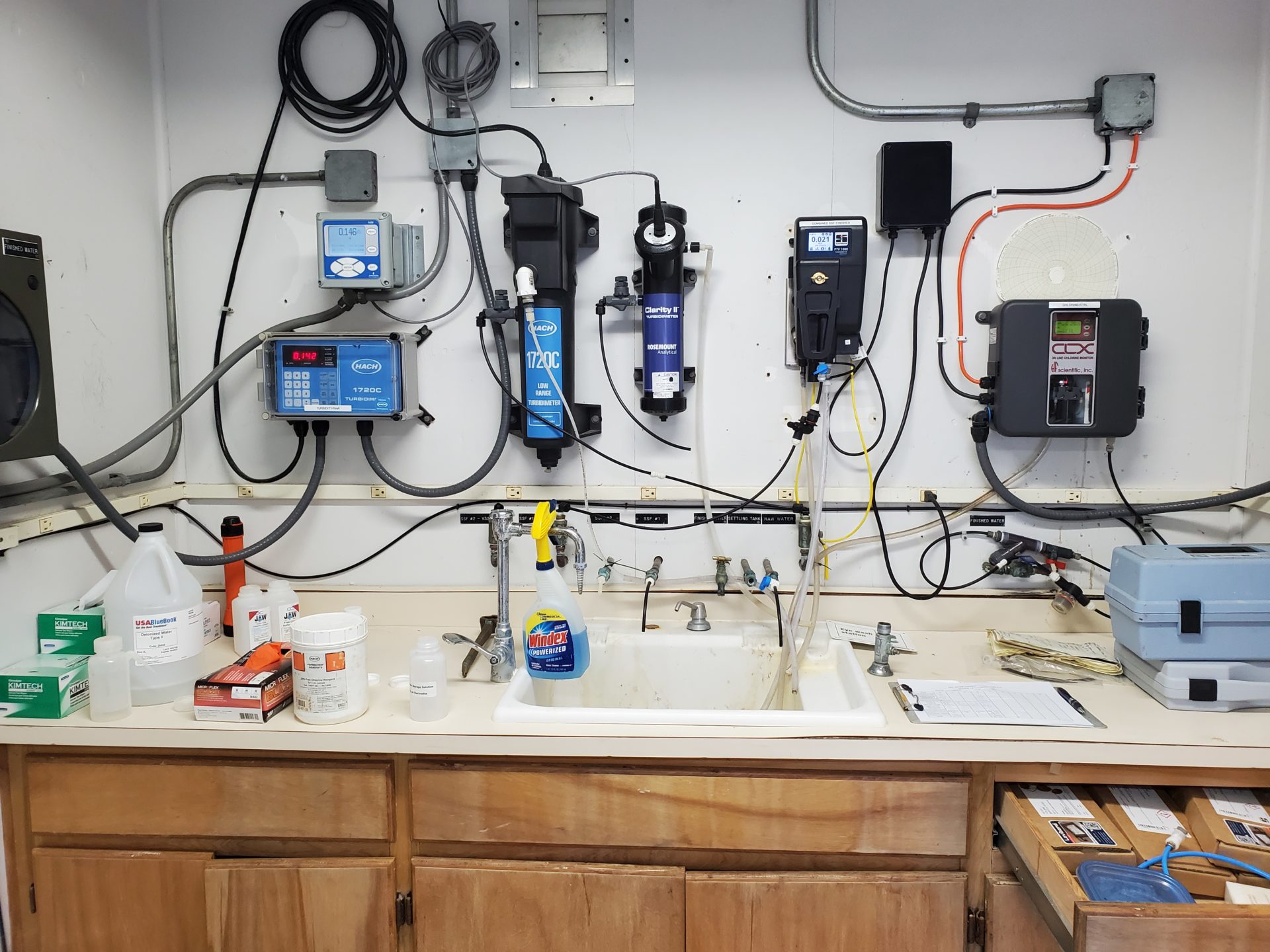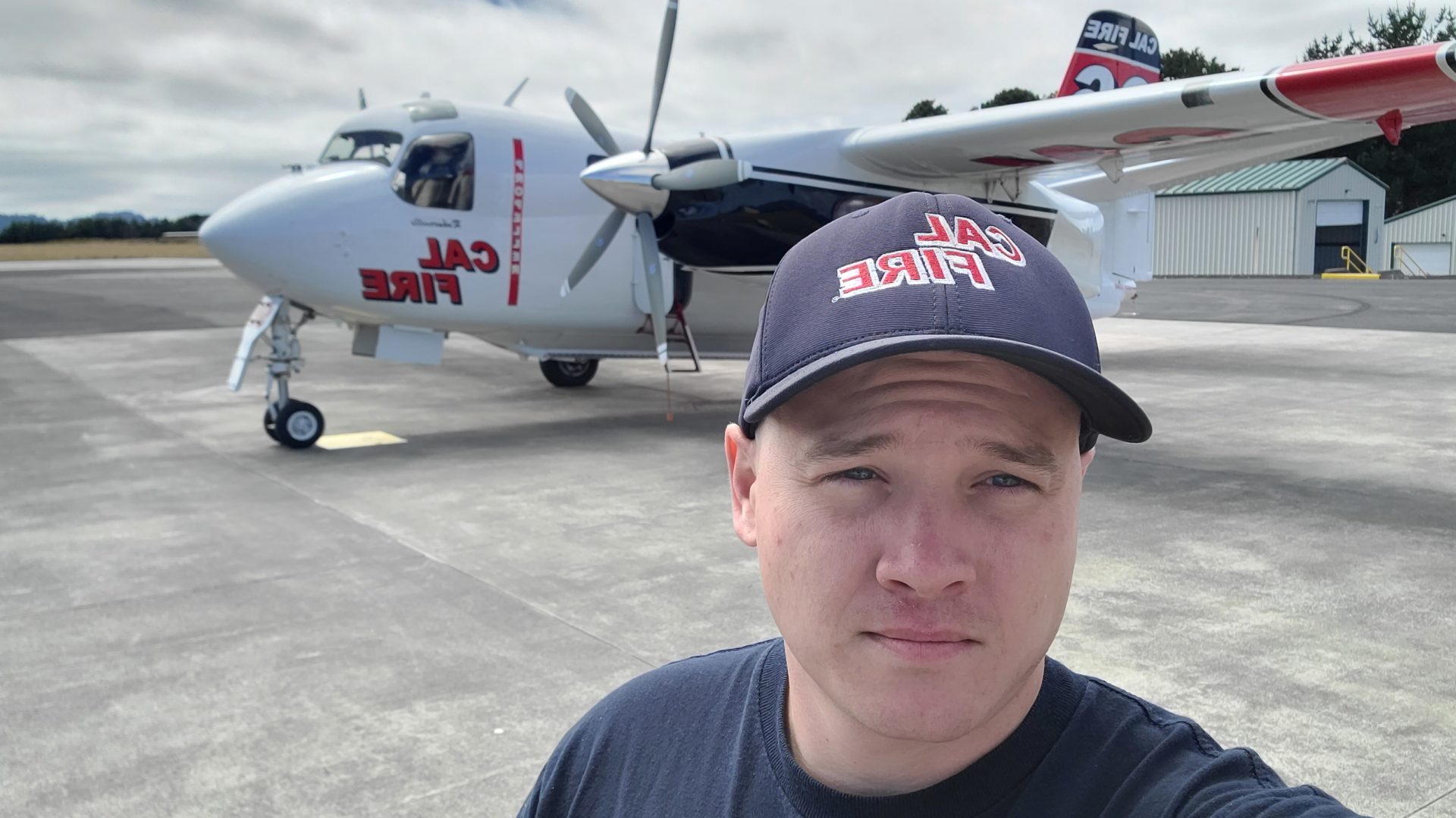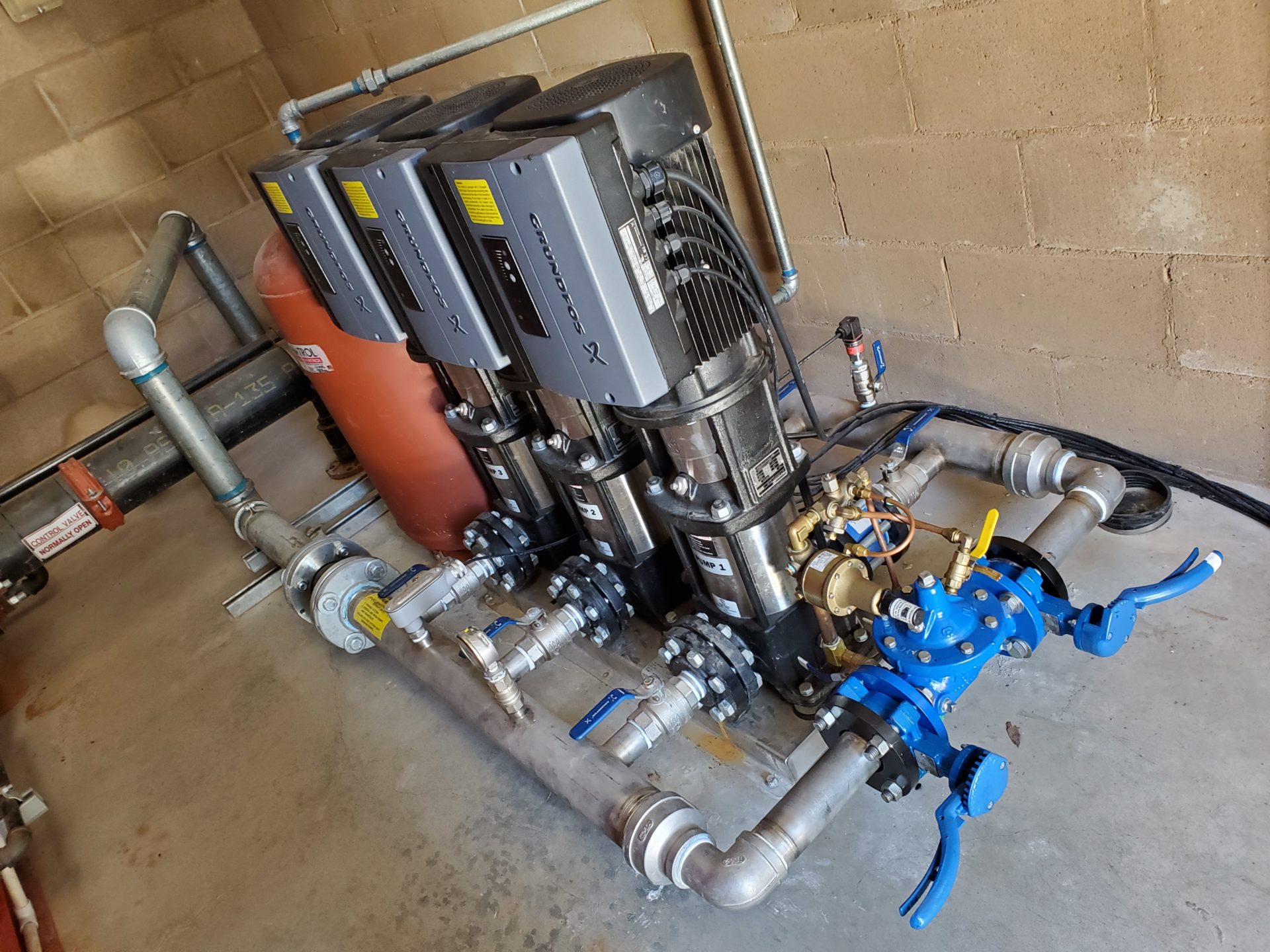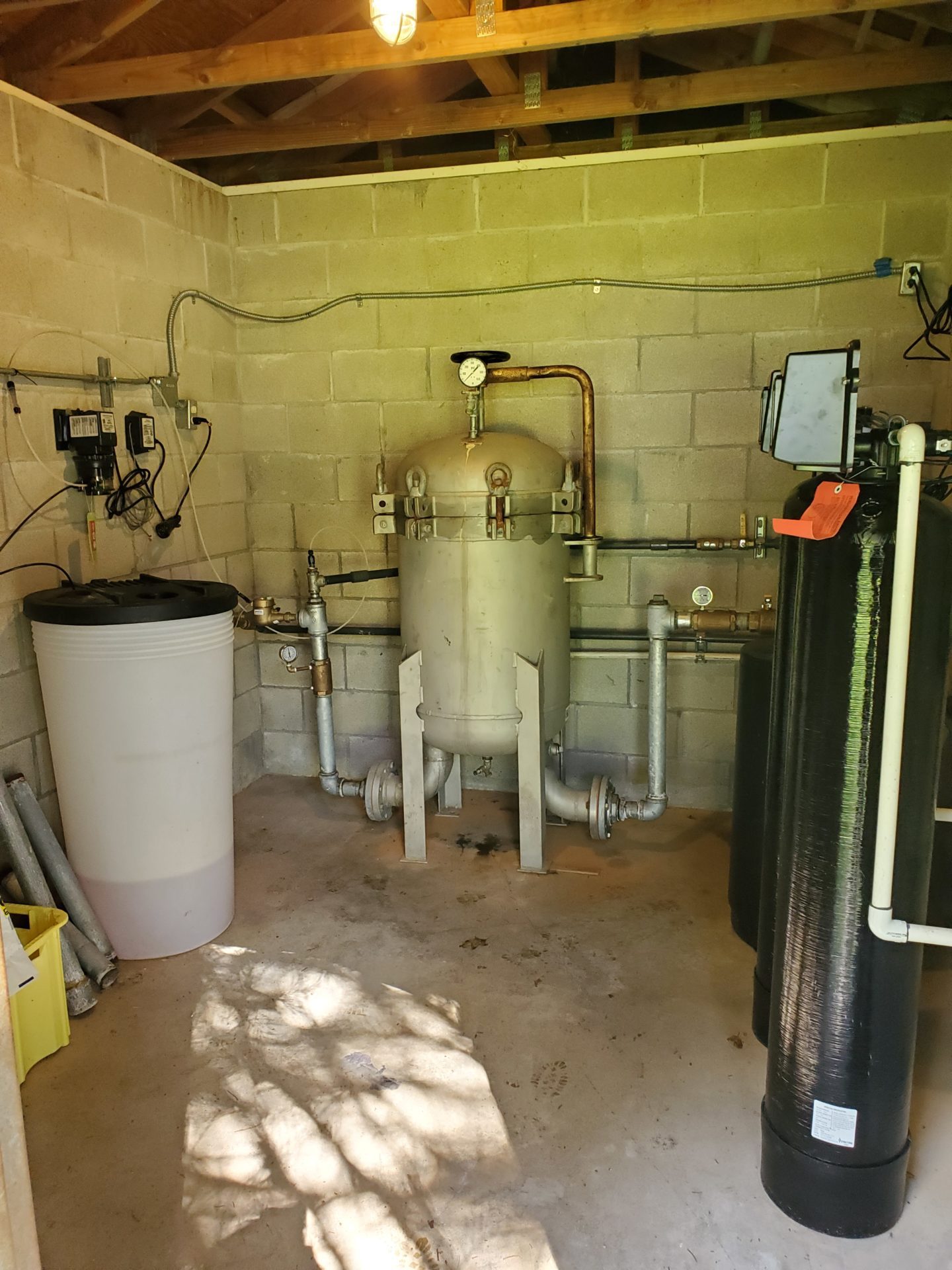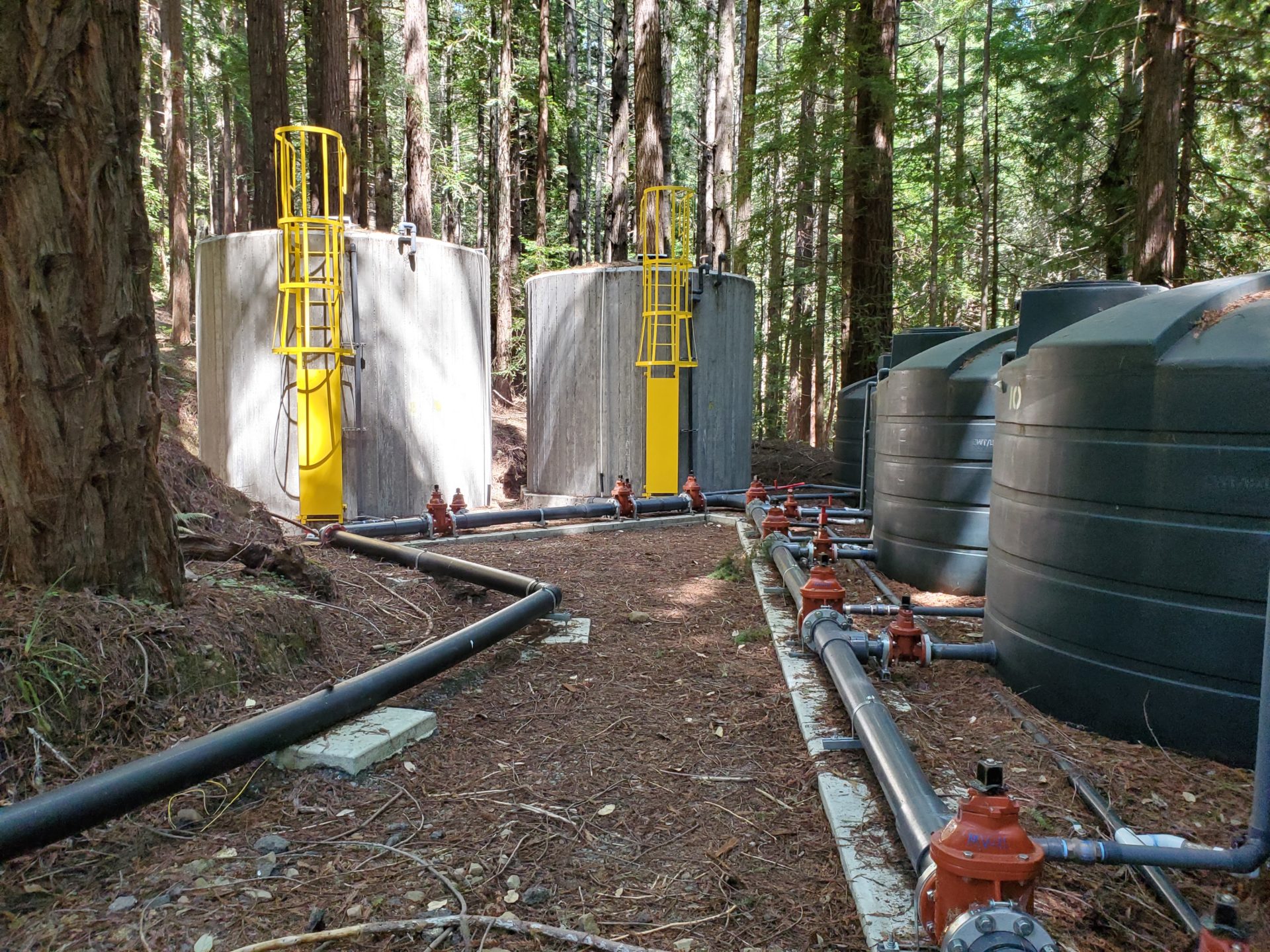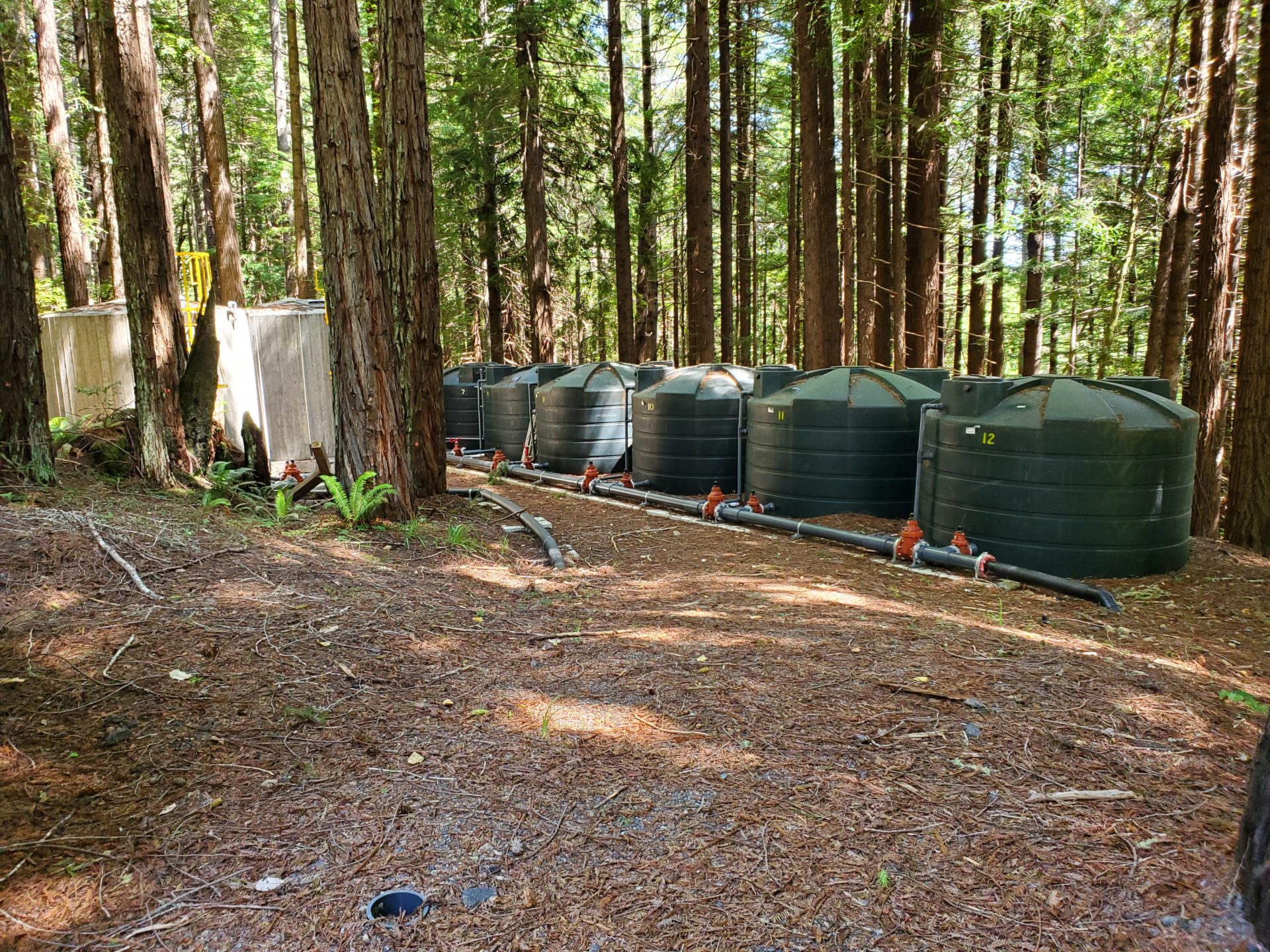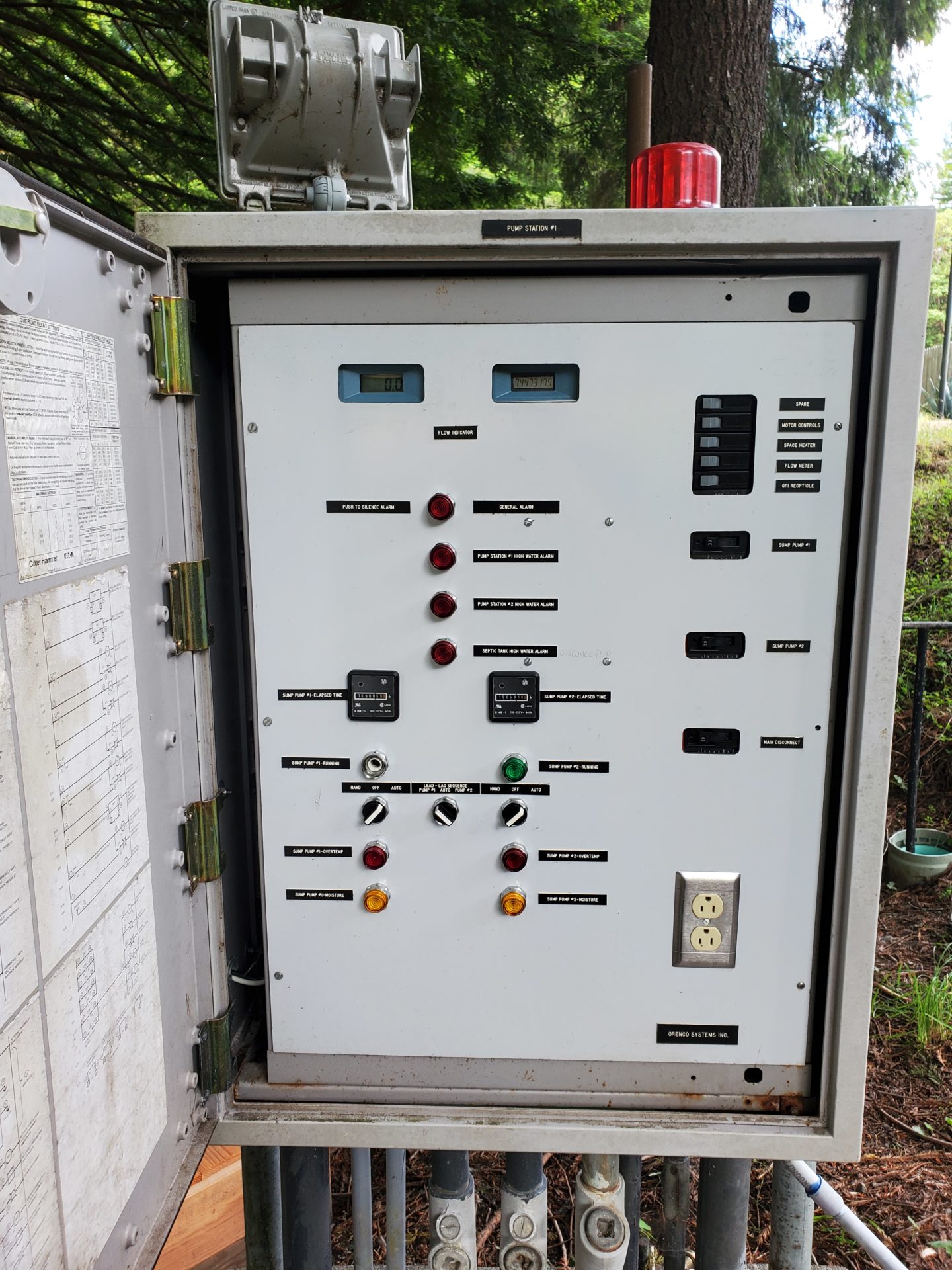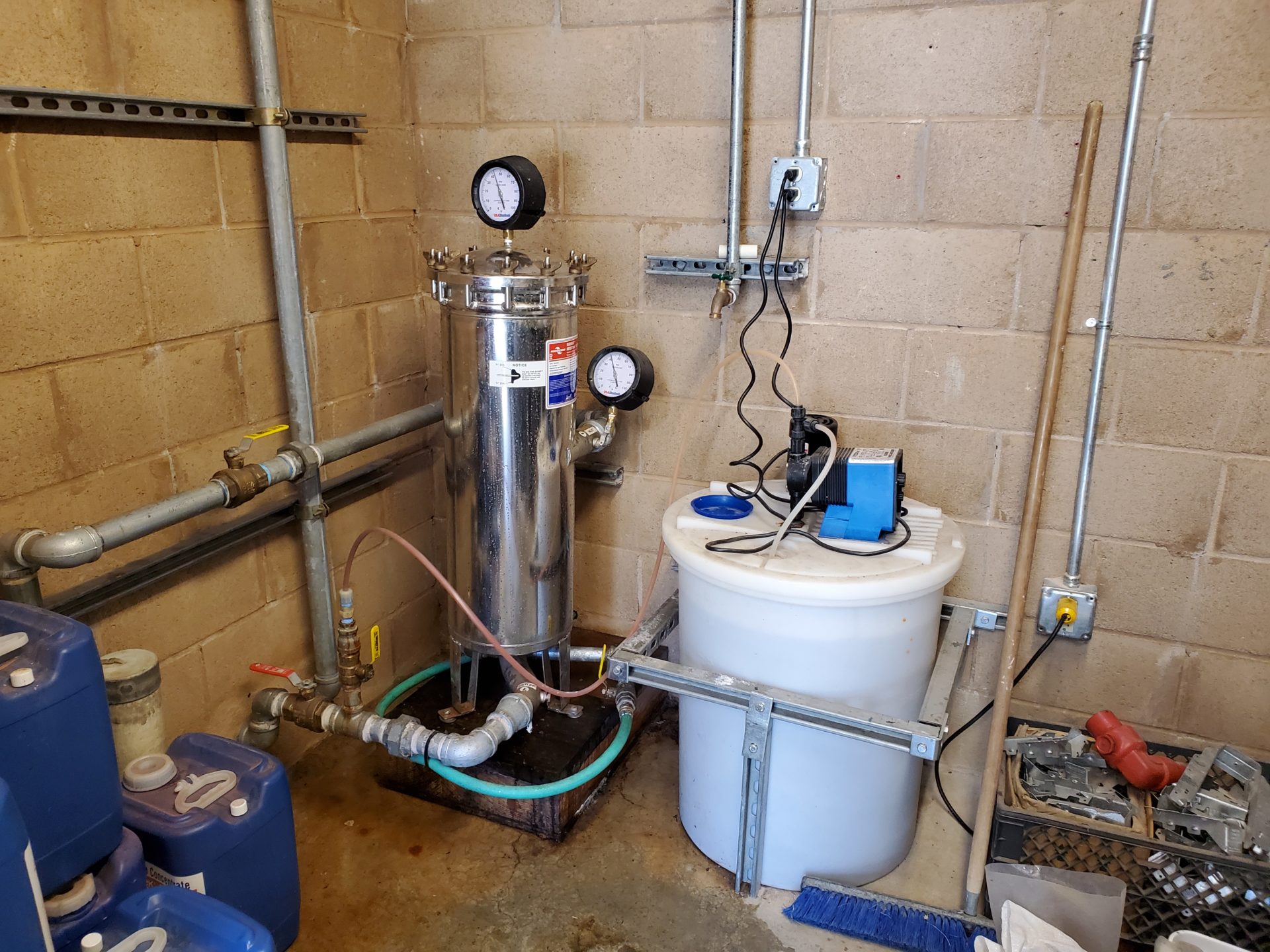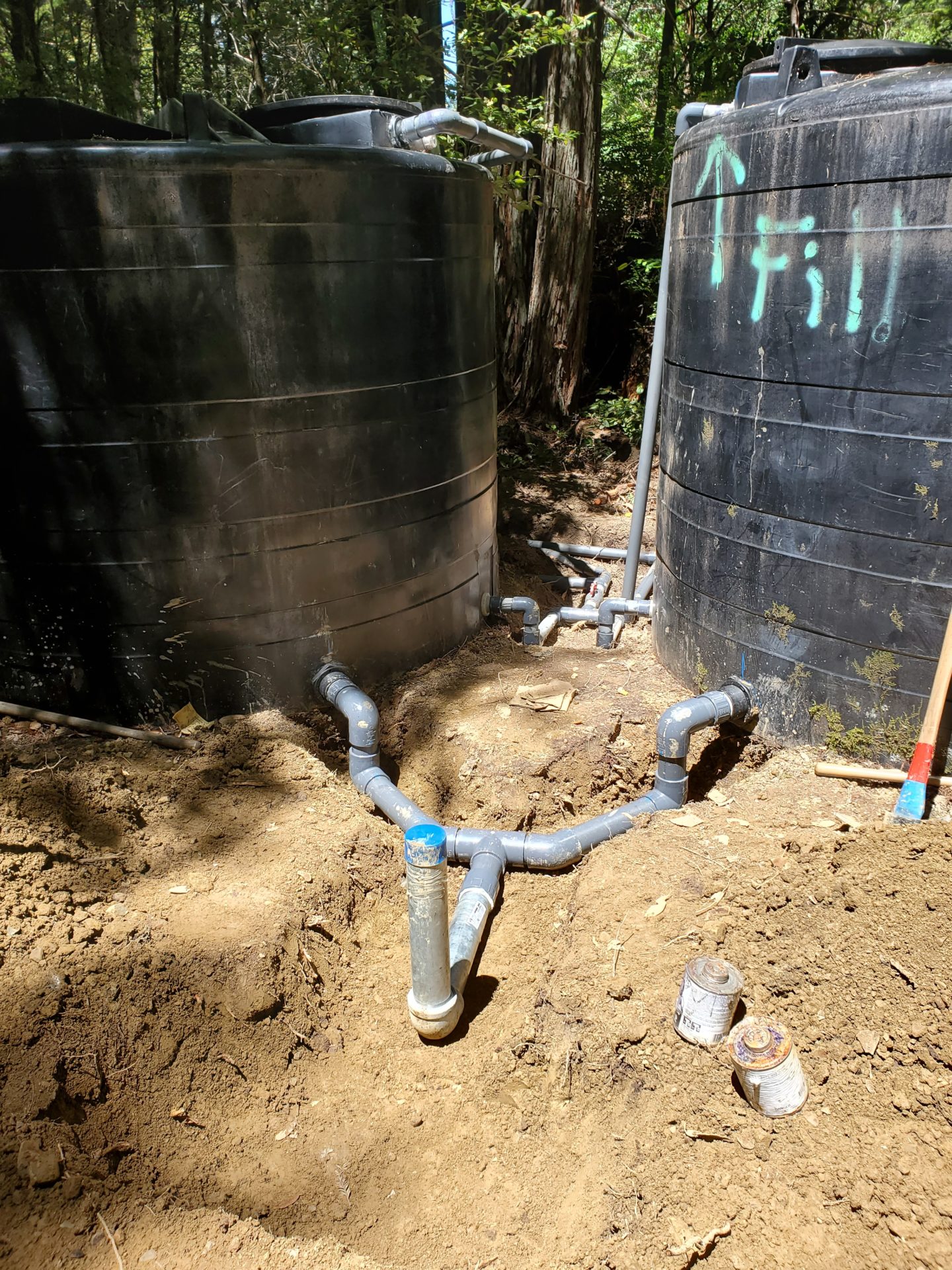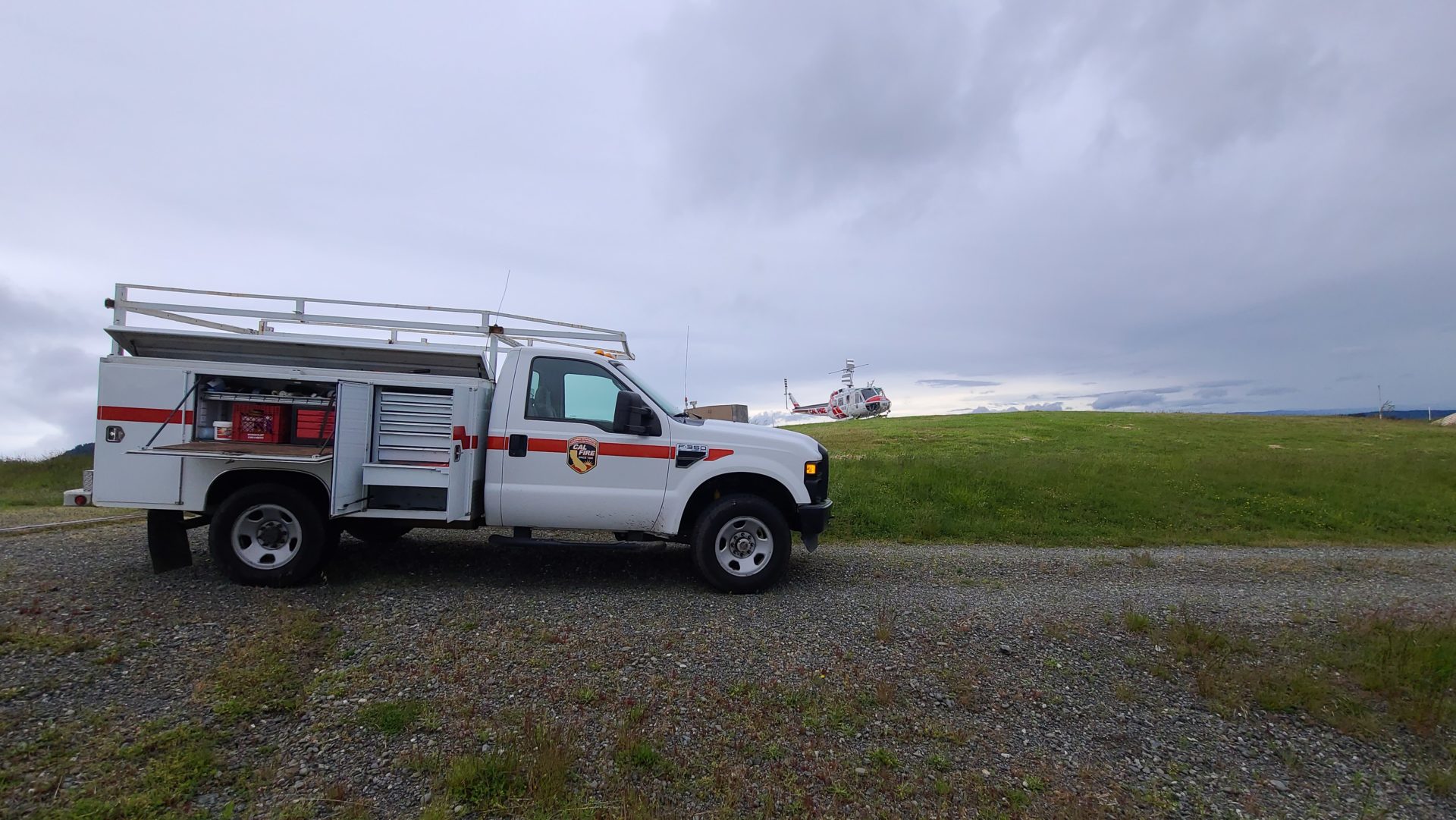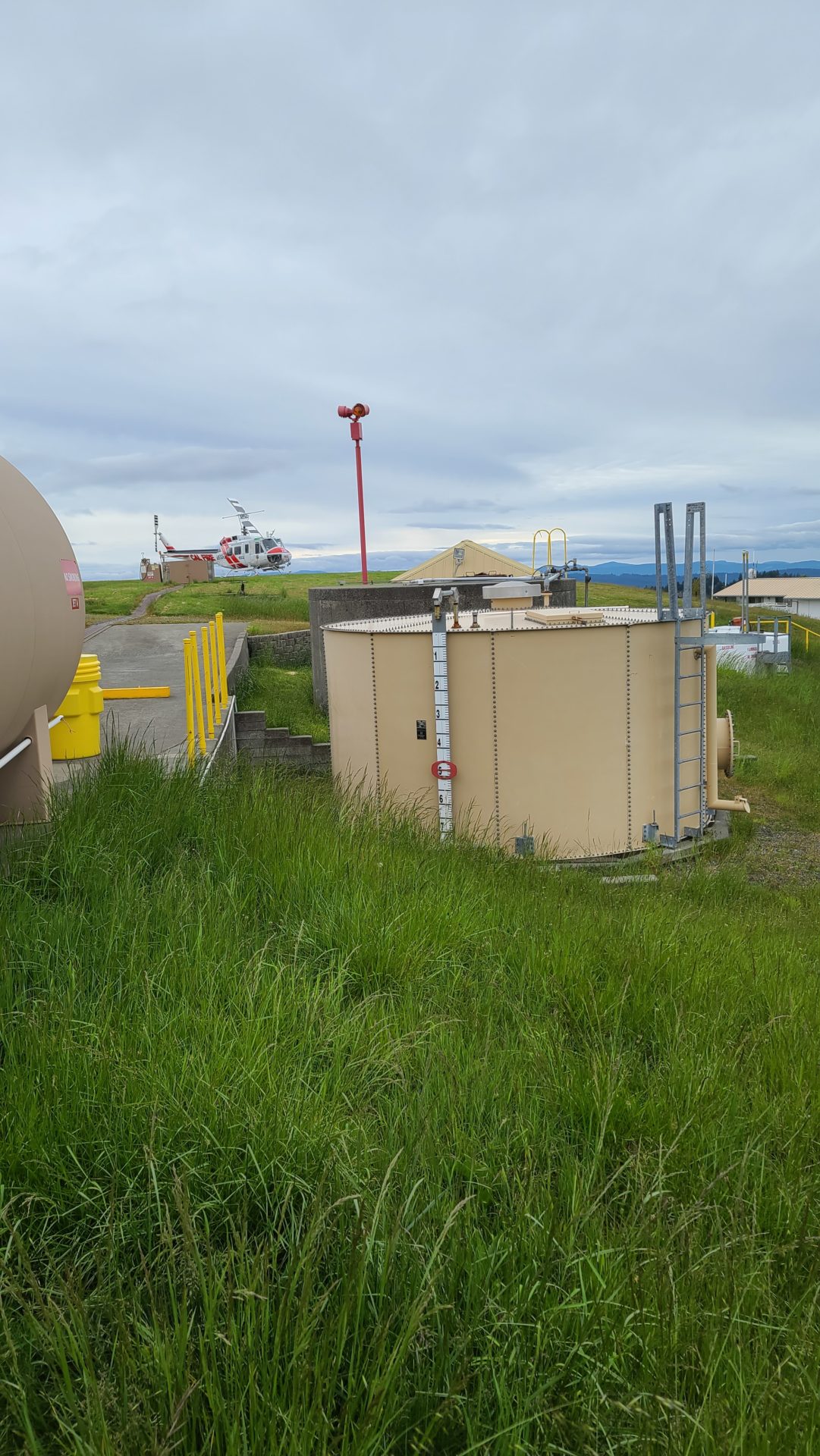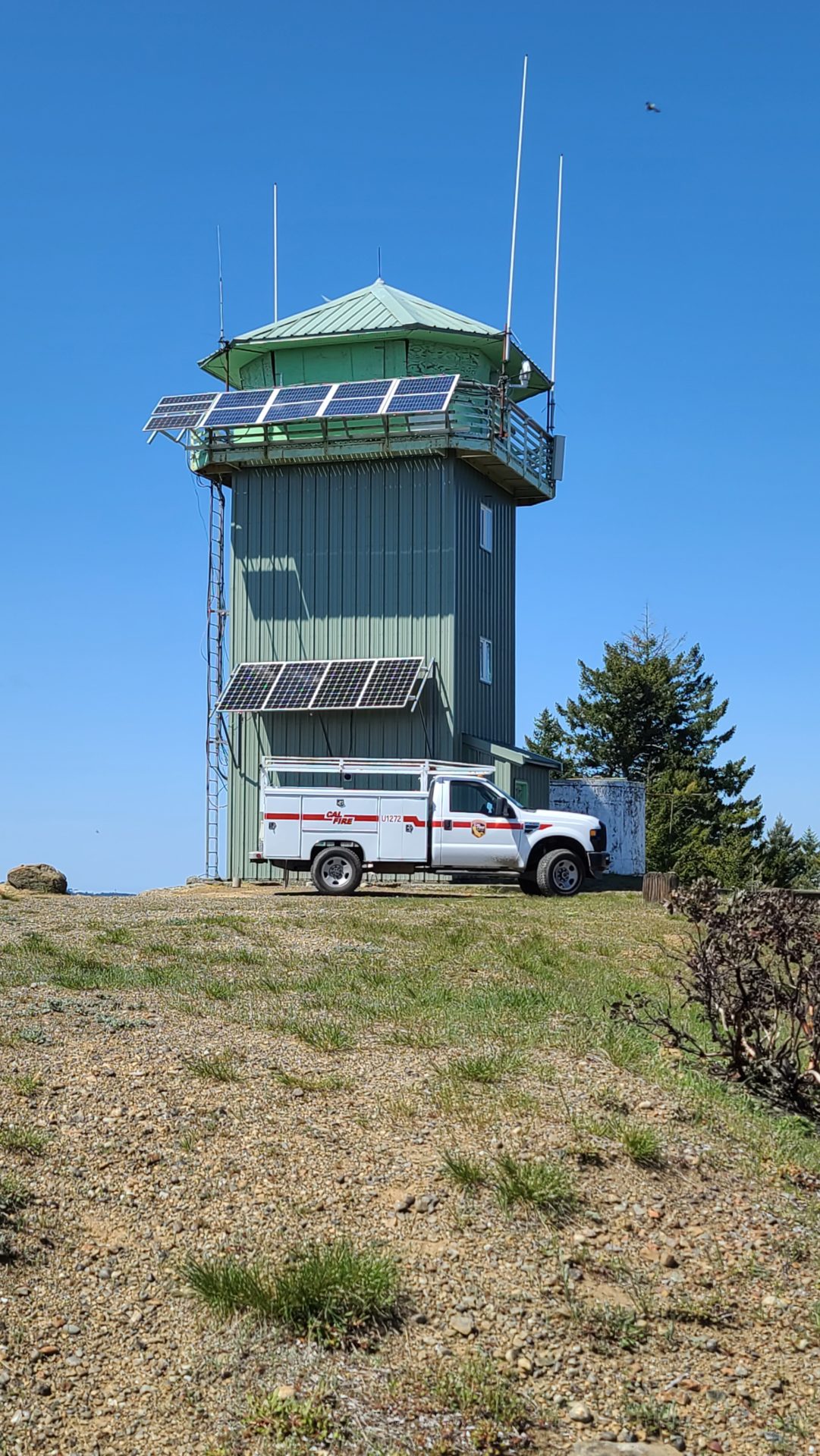NFNRC News Center – October 2020
Whether re-plumbing a water tank 60 feet up a fire tower or straining to concentrate over the syncopated din of Helitack choppers… it’s all good. Trevor McCaffrey just appreciates the fresh air.
A former lab technician in the metal plating industry, McCaffrey would spend his day around some of “the nastiest of chemicals” – toxic compounds like chlorinated hydrocarbons and even cyanide. One day, he decided he’d had enough, and a career change was in the air.
“I needed to find a new and related career before I ended up seriously hurting myself.”
Today, McCaffrey is a Water and Sewage Plant Operator – also known as a “W.A.S.P.O.” — working for Cal Fire’s High Rock Conservation Camp in Weott. As Chief Plant Operator, he maintains the camp’s water and wastewater systems, sometimes traveling to fire stations within the district to handle plumbing and maintenance. One day, he might be in a river, installing pumps and intakes for a station’s surface water treatment needs. The next day? Maybe supervising an inmate crew for a mobile fire kitchen; or fixing a water tower with a 100-mile panoramic view of Northern California’s famous Redwood Empire.
“The job is definitely dynamic,” says McCaffrey. “My favorite part about the industry is how unique the work is, and how every decision you make has an end result.
“This isn’t a job that you just do for the summer.”
Like many local success stories in the water treatment industry, McCaffrey began his journey at Shasta College. Far from the noxious fumes of his former industry, he enrolled in Shasta’s three-semester Water/Wastewater Treatment program, and soon began to live and breathe this versatile new trade.
With a new career goal in sight, McCaffrey proceeded to “soak up everything” the program had to offer. Under the wing of instructors Tom Warnock and Eric Marshall, he took a deep dive into a profession that combines equal parts math, science and old-fashioned elbow grease.
“Shasta College’s Water and Wastewater changed my future,” says McCaffrey, who credits his career education for his successful Wastewater Grade 3, Water Grade 2 and Water Distribution Grade 2 certifications. Soon after graduating, the Northern California native pursued a Wastewater Treatment Plant Operator position with the City of Crescent City and was immediately hired.
The expeditious result came as little surprise to McCaffrey.
“I knew the equipment, and I knew the water and wastewater process because of my schooling,” he says. “I had an incredible advantage over someone that is just hired off the street.”
It’s a story familiar to Shasta College’s Water Resources department, which has always espoused a hands-on, experience-over-theory ideology. Beginning with Warnock and Marshall, and continuing with Wastewater Instructor Jessica Chandler after Marshall’s retirement, the faculty employs a unique approach, coming from multiple angles to present a complete picture of water treatment careers in the real world.
The program’s instructors are “different in their own ways,” according to Shasta College alum Scott Russell, now working as a System Operator for Rio Alto Water District. As a tutor and mentor for students in the Water/Wastewater certificate program, Russell is in position to tell students firsthand just how fortunate they are to learn from such disparate experts.
“Tom is a very engineering-based teacher which helps with the understanding of how mechanically works and how it impacts other components,” says Russell. “Eric reached with an operator-based education and this helps understand how to make it work in the best way possible when things are not going exactly as planned and engineered.”
Even more than the industry-forged expertise, McCaffrey appreciated the willingness of his instructors to go the extra mile to support students.
“[Tom] is someone I still call today years later when I come across a problem I just can’t solve,” adds the Shasta success story. “He has made a huge impact on my career and life.”
Russell’s continued connection to the program is testament to Shasta College’s close-knit vibe and ongoing commitment to student outcomes. As a student, he was instrumental in setting up study groups to help learners who had enrolled for intermediate or advanced courses in the wrong order. Always one to give back, Russell continued to assist a former classmate even after completing his studies. That experience would trigger an idea:
“I thought to myself, why not make myself available to all the students,” recalls Russell. With his instructors’ blessing, he prepared a plan to establish his “study group” as an official student service.
“We presented it to the College and the rest is history,” says Russell. “The only way to get help before was to know someone already in the industry or fend for yourself.”
While the sheer volume of scientific and technical knowledge required to succeed in Wastewater can be daunting, it has engendered tremendous demand for professionals with college-level training. Particularly in Northern California, where job opportunities are outpacing academic pathways, a college education can mean the difference between unemployment and an essential career.
“The industry is hurting extremely bad for operators… right now there are 13 camps without WASPOs in Cal Fire,” says McCaffrey. “You will always have a job, and it is a very steady career with unlimited growth potential.”
Currently, a wastewater treatment plant operator in California earns an average of $72,320* per year – about 50 percent higher than the national average for the same position. For a state that depends so heavily on water resources, from farming to firefighting and conservation, career pipelines like Shasta College are critical to the future.
“The wastewater industry will always be needed,” says Russell. “[It] helps give an understanding of how small things can make a large impact on the environment, good or bad.”
For McCaffrey, choosing Shasta College’s Water/Wastewater program was a life-changer, and perhaps even a life-saver. Now succeeding in an exciting, rewarding career, he’s quick to recommend his pathway to other “blue-collar bookworm” types.
Just be ready for some déjà vu.
“You never know when you might see different treatment processes later in your career, that you can remember from your days in the Shasta College program.”
Learn more about the Water Resources programs, and other Shasta College career education offerings at https://www.shastacollege.edu/academics/programs/water-resources/
*Source: O-Net Online — https://www.onetonline.org/link/localwages/51-8031.00?st=CA&g=Go
